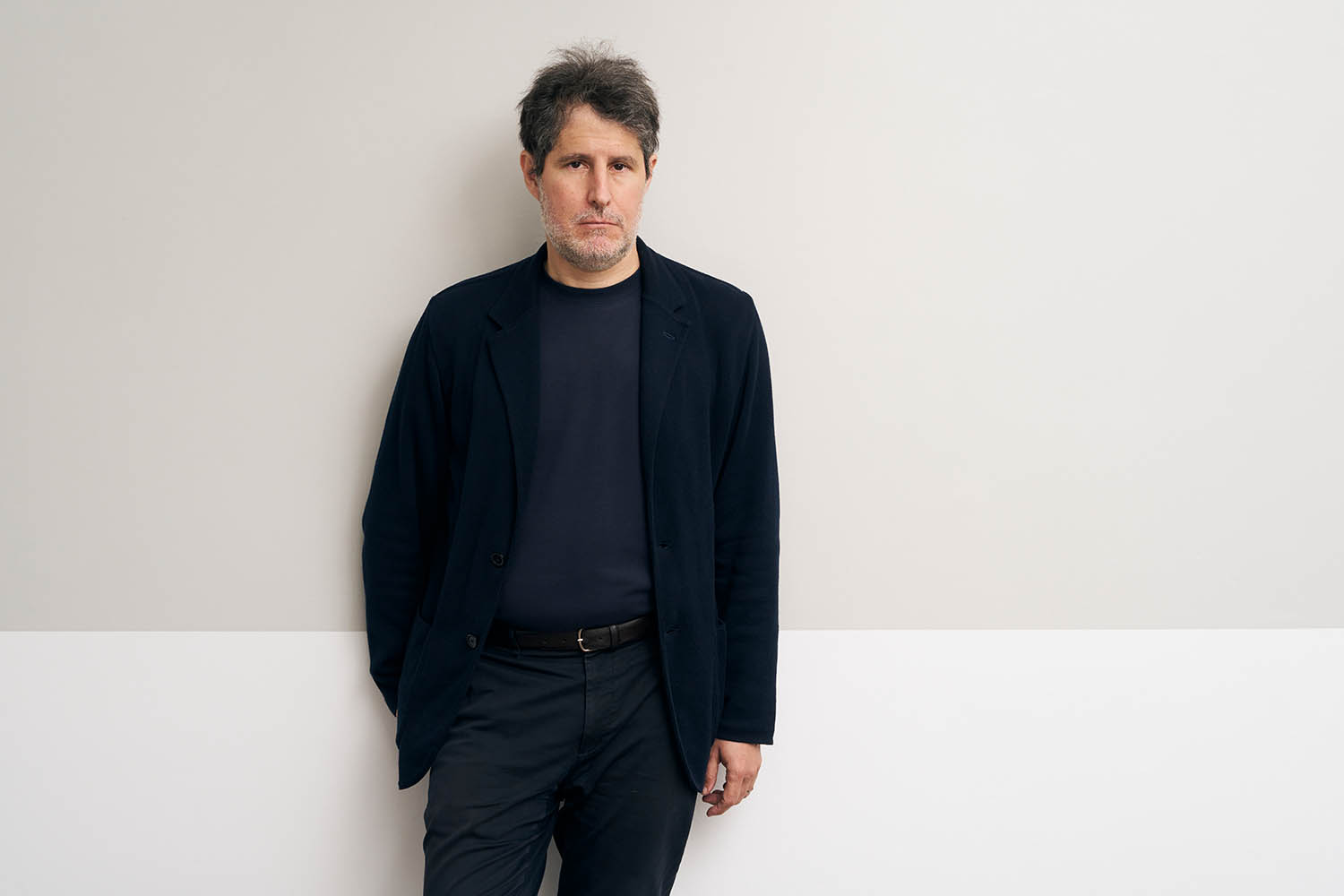Portrait by Suki Dhanda
Giuliano da Empoli, 52, is a former political adviser to Matteo Renzi, who served as Italian prime minister from 2014-2016. His debut novel The Wizard of the Kremlin – about a Russian spin doctor and inspired by former Vladimir Putin adviser Vladislav Surkov – became an international bestseller and has been turned into a film starring Paul Dano, Alicia Vikander and Jude Law. His new book, The Hour of the Predator, explores the universe of autocrats and tech billionaires including Donald Trump, Putin, crown prince Mohammed bin Salman and Salvadoran president Nayib Bukele.
Your father was almost assassinated by Italian militant group the Red Brigades. How formative was that in your view of politics?
I had a very quiet childhood. I was in Paris and in Brussels: a suburban life, very quiet. We moved back to Rome when I was 10, when my father worked for the socialist prime minister Bettino Craxi. Quite shortly after that, he was shot. It definitely made an impact and informed my conception of politics as something that is intense, existential and violent.
In The Hour of the Predator you open with scenes including the comedy of leaders jostling at the UN. What did your visits there teach you?
The closer you get to the heart of power, the nuttier it is. The core of it is extraordinarily serious and even noble in a way, because its fundamental function is to prevent people from killing each other when they disagree. But there is a ridiculous element to it.
There are three different political TV series. The first is the heroic West Wing, with competent political figures full of good intentions. Then there’s the machiavellian House of Cards; politicians like this because it makes them seem scheming and brilliant. And then there’s Armando Iannucci’s brilliant Veep, with ambitious, ridiculous people fumbling to stay on top in the midst of absurd situations.
When I was working with the prime minister, I would play a game with his spokesman where we tried to determine what percentage of each day had been which series. We thought most were 10% West Wing, 20% House of Cards and 70% Veep. If you look at the predators [in my book], there’s less West Wing and more House of Cards – but the majority is still Veep.
I have read that you used Machiavelli’s office when you were working for the mayor of Florence.
I was on the same floor – we couldn’t work out which was his office. Machiavelli [1469-1527] lived in chaotic times, the legitimacy of power had gone and there were no rules any more. He deals with illegitimate power. He doesn’t take a moral posture; he’s just trying to dissect the thing. His goal was to save Florence. He was part of the republican government of Florence. When the Medicis come back, they kick him out, and most of the stuff he writes – especially The Prince – is when he’s out of work.
I like the extreme brutal realism of his analysis. He definitely is relevant in this chaotic, illegitimate environment we’re in, where you can actually grab power through rash, sudden action.
Machiavelli said the first law of strategy is action. You illustrate this with an account of Saudi leader Mohammed bin Salman (MBS) removing rivals. Why use him as an example?
This element of restoring power in a very visible and shocking way [has] a very strong appeal in a chaotic environment. We live in societies where people have the feeling that nothing changes: vote right or left; it doesn’t make a difference. A predator proposes a miracle. He says: “I have to break the rules, they are there to protect the elite.” Shakespeare has the line: “The first thing we do, let’s kill all the lawyers.”
Trump, Putin, MBS: throughout human history, you’ve had characters like that. What’s original is the fact that they’re now united with the tech lords. And what they have in common is: “Kill the lawyers.”
Is there any hope of building our own Italian rounded walls against the new predators?
I think we were naive facing the tech conquistadors and the whole cultural change they brought. We thought you couldn’t do anything about it [but] the same technology can produce very different effects according to where it lands. The printing press produces three completely different effects in Imperial China, in Europe during the Reformation and in the Islamic Caliphate. Maybe there’s a space for a model that will protect and enhance liberal democracy.
I suppose it’s because you compare yourself to an Aztec scribe that I think of you as being apocalyptic.
That felt the closest to my position. I’m the scribe of a dying, or at least very threatened, civilisation. Liberal democratic institutions and the political class suddenly see these strange [tech bro] characters in hoodies. They don’t understand them. They just know that there’s something advanced about them. It’s like the Aztecs seeing strange men come down from floating cities with sticks that produce thunder and lightning. There’s a bit of that in the meetings between politicians and tech people that I’ve witnessed.
In The Wizard of the Kremlin you write about the theatre of Putinism. But the new book seems much more about direct violent action.
The invasion of Ukraine was a decision – an action – but it was the wrong one. As a result, Putin can no longer mess around with theatre. He made a bad decision. I think he’s in a form of tunnel vision that comes from being in power too long. This is why in the west we have developed checks and balances. Putin is now more powerful within a system that is weaker, and that is going in the wrong direction. He doesn’t need all the sophisticated theatre of power. It’s just openly brutal.
You’re friends with Emmanuel Macron. His recent decisive action has not helped France. How can an Italian help him?
I love France, but it faces a political system that is imploding: parties that are basically disappearing; political instability; the overhanging threat of public deficit; public finances in a big crisis. This has been Italian politics for the last 30 years. The difference is we have the software for it, the mentality. France doesn’t. To be Italian is not always an advantage, but it is a reasonably good preparation for the world that’s coming.
The Hour of the Predator: Encounters with the Autocrats and Tech Billionaires Taking Over the World by Giuliano da Empoli and translated by Sam Taylor is published by Pushkin Press (£12.99). Order a copy for £11.04 from The Observer Shop. Delivery charges may apply
Newsletters
Choose the newsletters you want to receive
View more
For information about how The Observer protects your data, read our Privacy Policy



